Dodecahedron Quotes & Sayings
Enjoy reading and share 6 famous quotes about Dodecahedron with everyone.
Top Dodecahedron Quotes
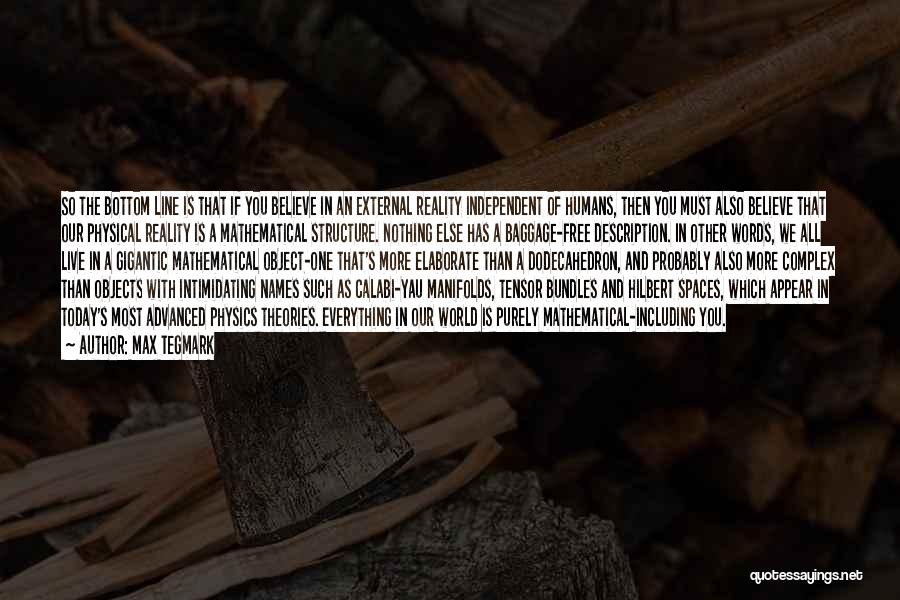
So the bottom line is that if you believe in an external reality independent of humans, then you must also believe that our physical reality is a mathematical structure. Nothing else has a baggage-free description. In other words, we all live in a gigantic mathematical object-one that's more elaborate than a dodecahedron, and probably also more complex than objects with intimidating names such as Calabi-Yau manifolds, tensor bundles and Hilbert spaces, which appear in today's most advanced physics theories. Everything in our world is purely mathematical-including you. — Max Tegmark

How was your day, Rosie?" Dad would ask when he came home from work and I'd tell him it was ebullient. Or limpid. Or dodecahedron. "That's good to hear," he'd say. — Karen Joy Fowler
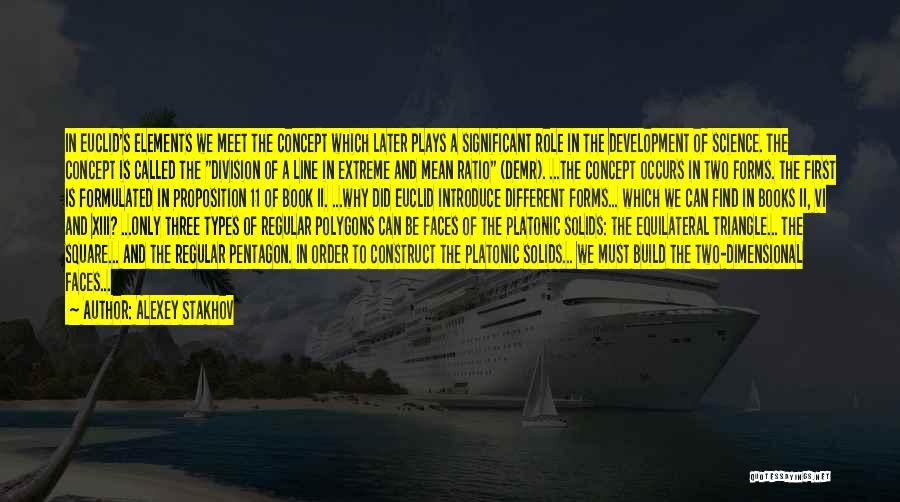
In Euclid's Elements we meet the concept which later plays a significant role in the development of science. The concept is called the "division of a line in extreme and mean ratio" (DEMR). ...the concept occurs in two forms. The first is formulated in Proposition 11 of Book II. ...why did Euclid introduce different forms... which we can find in Books II, VI and XIII? ...Only three types of regular polygons can be faces of the Platonic solids: the equilateral triangle... the square... and the regular pentagon. In order to construct the Platonic solids... we must build the two-dimensional faces... It is for this purpose that Euclid introduced the golden ratio... (Proposition II.11)... By using the "golden" isosceles triangle...we can construct the regular pentagon... Then only one step remains to construct the dodecahedron... which for Plato is one of the most important regular polyhedra symbolizing the universal harmony in his cosmology. — Alexey Stakhov
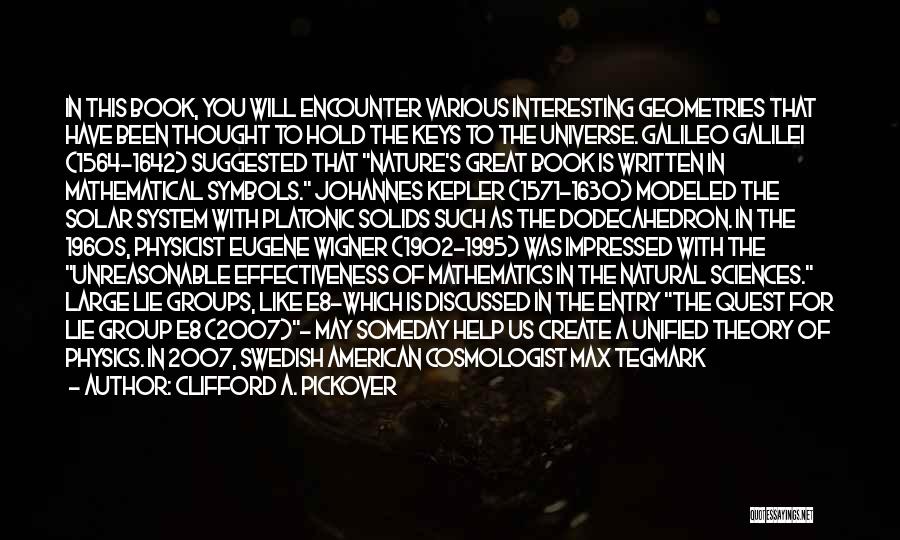
In this book, you will encounter various interesting geometries that have been thought to hold the keys to the universe. Galileo Galilei (1564-1642) suggested that "Nature's great book is written in mathematical symbols." Johannes Kepler (1571-1630) modeled the solar system with Platonic solids such as the dodecahedron. In the 1960s, physicist Eugene Wigner (1902-1995) was impressed with the "unreasonable effectiveness of mathematics in the natural sciences." Large Lie groups, like E8-which is discussed in the entry "The Quest for Lie Group E8 (2007)"- may someday help us create a unified theory of physics. in 2007, Swedish American cosmologist Max Tegmark published both scientific and popular articles on the mathematical universe hypothesis, which states that our physical reality is a mathematical structure-in other words, our universe in not just described by mathematics-it is mathematics. — Clifford A. Pickover
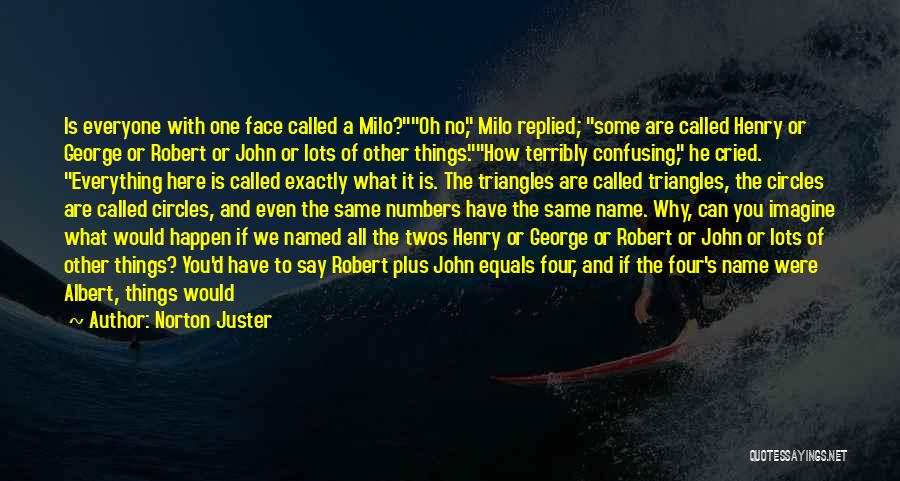
Is everyone with one face called a Milo?"
"Oh no," Milo replied; "some are called Henry or George or Robert or John or lots of other things."
"How terribly confusing," he cried. "Everything here is called exactly what it is. The triangles are called triangles, the circles are called circles, and even the same numbers have the same name. Why, can you imagine what would happen if we named all the twos Henry or George or Robert or John or lots of other things? You'd have to say Robert plus John equals four, and if the four's name were Albert, things would be hopeless."
"I never thought of it that way," Milo admitted.
"Then I suggest you begin at once," admonished the Dodecahedron from his admonishing face, "for here in Digitopolis everything is quite precise. — Norton Juster
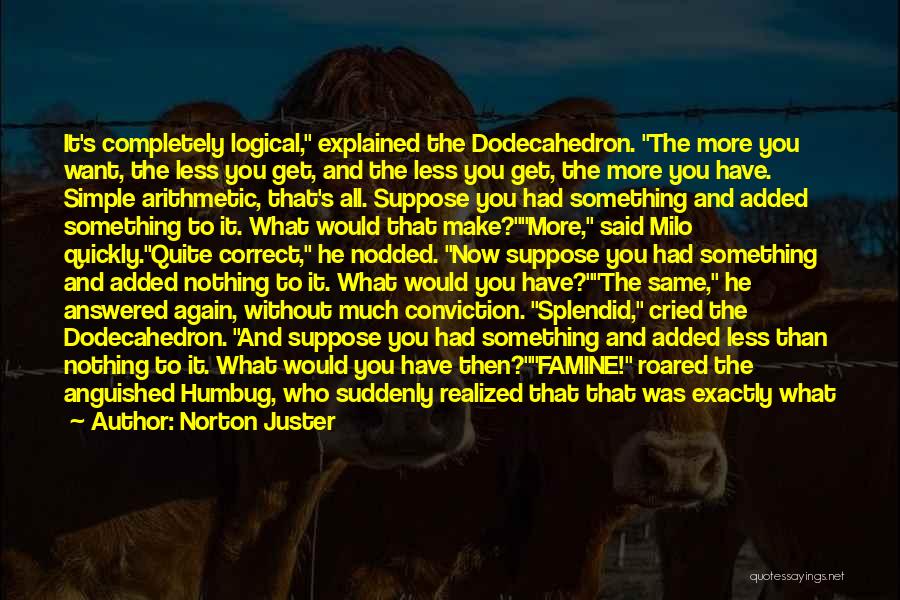
It's completely logical," explained the Dodecahedron. "The more you want, the less you get, and the less you get, the more you have. Simple arithmetic, that's all. Suppose you had something and added something to it. What would that make?"
"More," said Milo quickly.
"Quite correct," he nodded. "Now suppose you had something and added nothing to it. What would you have?"
"The same," he answered again, without much conviction.
"Splendid," cried the Dodecahedron. "And suppose you had something and added less than nothing to it. What would you have then?"
"FAMINE!" roared the anguished Humbug, who suddenly realized that that was exactly what he'd eaten twenty-three bowls of. — Norton Juster





